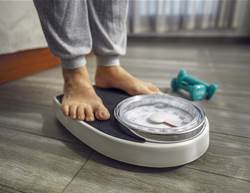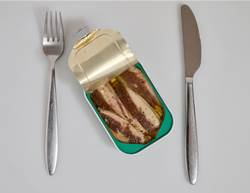Decades went by before Natasha Turner connected her poor health to a hormonal imbalance. Here's how she was able to transform her health, weight, and happiness.
These days I feel great, but it wasn't that long ago that life was a daily struggle. In my early 20s I found myself awash in symptoms that didn't seem to add up. I was hungry and tired all the time, I couldn't think straight, I was losing my hair, and my weight soared 10 kilos —all of it, it seemed, around my belly. Like so many women, I stuck to a rigid routine of strenuous exercise and counted every calorie.
I chalked it up to the stress of finishing school. But after countless doctor visits, blood tests, ultrasounds, and even a trip to the emergency room, I finally discovered the real culprit: I had a hypoactive thyroid.
With treatment and medication, I was able to bring my hormone levels back to normal, lose the weight, and regain my energy.
But a few years later, the symptoms reappeared! I was a practicing doctor, and on a professional hunch, I underwent blood tests and ultrasounds to confirm my suspicions. I had polycystic ovarian syndrome (PCOS). PCOS often causes irregular periods, hair loss, infertility, acne, and weight gain; it's also linked to an increased risk of breast cancer and diabetes. My cravings, constant hunger, fatigue after eating, and fat gain around my belly—which had all returned—were obvious signs of high insulin levels, an indication of PCOS.
I dove into research on how to rebalance my out-of-whack hormones—this time I was determined to do it naturally. I learned that everything from what you eat to how you deal with stress can affect a hormonal flare-up. To this day, I do my best to eat, move, sleep, and live for ultimate hormone health.
If you struggle like me, it's likely your hormones. Research has shown that even the slightest hormone upset can wreak havoc on your weight. These blood chemicals control everything from metabolism to where fat is stored, and dictate how your body regulates appetite, cravings, sleep, and more. Hormones can even affect your heart health, and play a role in whether or not you develop diabetes, arthritis, thyroiditis, and many other conditions.
But what's interesting is that you don't need to have a chronic disease to boost, balance, and train your hormones to perform like Olympians. Here are four ways I power up my hormones—and how you can, too.
 Credit Link:
Credit Link:
1. Eat For Your Hormones
I always aim for the ideal balance of protein, low-GI carbs, healthy fats, and fibre. This approach keeps blood sugar stable and energy up. Plus, adding fibre to each meal increases the hormone adiponectin, responsible for decreasing inflammation and fueling fat-loss.
2. Keep Exercise Short And Sweet
You don't have to spend hours sweating it out. Just 30 minutes is all you need to lower cortisol, increase insulin sensitivity, boost bone health, and fuel fat-burning hormones like DHEA. In fact, a good workout can reduce the hormones that interfere with fat loss, including excess stress hormones that can wear the body down, and excess oestrogen (which can increase breast cancer risk). The secret to success is a combination of walking, yoga, and some strength training.
3. Forget The Naps
If your thyroid is producing too few hormones due to lack of sleep or too much stress, you could end up with a low-functioning thyroid (and even high cholesterol). Stimulate the thyroid by hitting the sweet spot of 7.5 to 9 hours of sleep. Try to get your sleep all at once, rather than napping, for the best result.
Have trouble staying asleep? Research has shown that when taken orally, melatonin significantly improves your ability to get a good night's rest. What's more, it can decrease cortisol as it spurs the release of growth hormone to repair and rebuild muscles, bones, and skin—all while you're off in dreamland.
4. Get Serious About Stress
When you're under constant stress, your adrenals produce too much adrenaline and fat-packing cortisol. Next thing you know, you feel burned out and exhausted, your blood sugar and cravings are out of control and the pounds pile on. (It's easy to see what happens when your hormones go haywire!) By reducing stress, you'll maintain healthy adrenaline levels that balance blood sugar and help fat become the primary energy source for your body.










